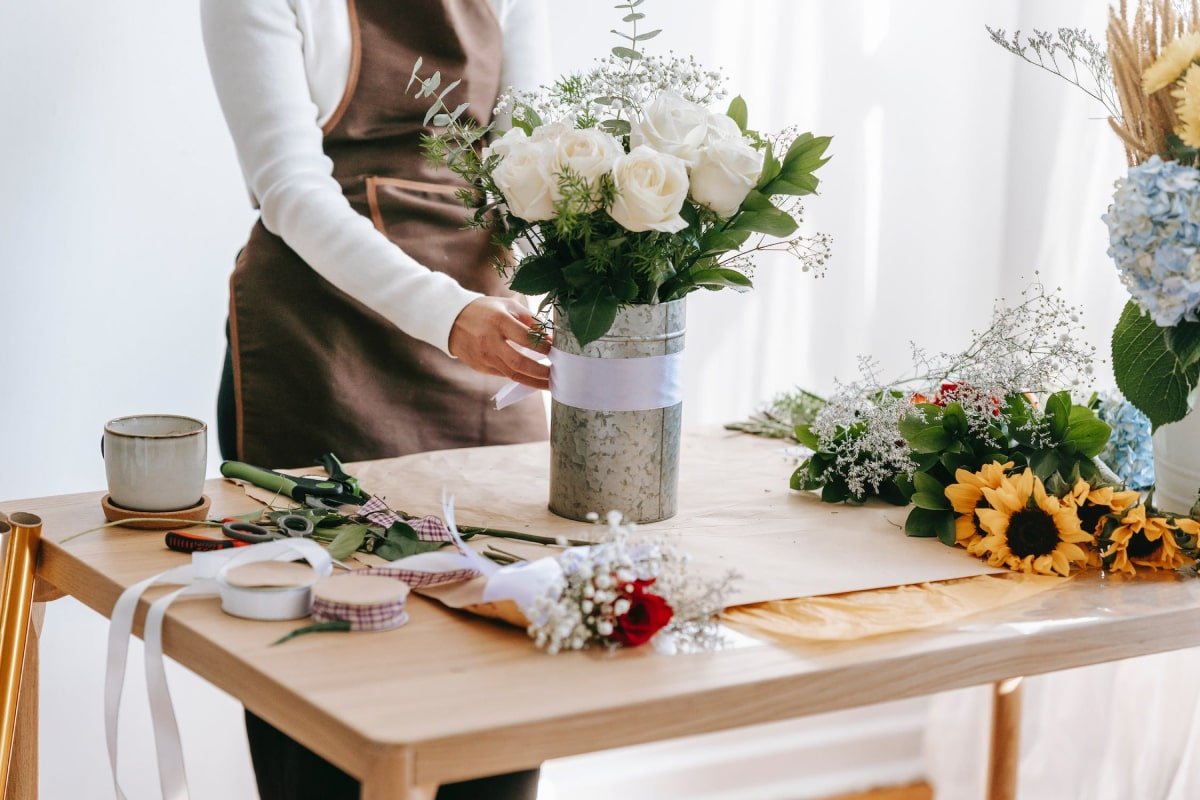Blog
Flower Arrangement Tips & Tricks from Floral Experts

🌸 Flower Arrangement Tips to Brighten Any Space
Fresh flowers don’t just add color—they bring joy, fragrance, and life to any room. Whether you're arranging blooms for your home or gifting a bouquet, here are some simple tips to create stunning, long-lasting floral arrangements:
1. Choose the Right Vase
Pick a vase that complements the height and volume of your flowers.
Use a narrow-neck vase for tall stems like lilies or roses.
For shorter flowers, a wide-mouthed or bowl-shaped vase works best.
2. Trim Stems at an Angle
Always cut stems at a 45° angle to help them absorb more water.
Trim about 1 inch off the bottom when you get them, and refresh the cut every few days.
3. Remove Leaves Below Water Level
Leaves in water can rot quickly, causing bacteria to grow and shortening flower life.
Strip off any foliage that will sit below the waterline.
4. Start with a Focal Flower
Begin your arrangement with a “star” flower—like a rose, sunflower, or dahlia.
Build around it using complementary blooms and fillers like baby’s breath or eucalyptus.
5. Balance Colors and Heights
Mix bold blooms with soft tones for contrast.
Vary the stem heights slightly for a natural, flowing look.
6. Change Water Every 2–3 Days
Keep your flowers fresh by swapping out the water and re-trimming the stems regularly.
You can also add a bit of sugar or a floral preservative for extra longevity.
7. Play with Texture and Shape
Combine soft petals with structured greenery.
Don’t be afraid to mix wildflowers with classic roses or tulips for a unique twist.
✨ Pro Tip: Place your flower arrangement near natural light but away from direct sunlight and heat sources to keep them happy and hydrated!
If that’s what you think how bout the other way around? How can you evaluate content without design? No typography, no colors, no layout, no styles, all those things that convey the important signals that go beyond the mere textual, hierarchies of information, weight, emphasis, oblique stresses, priorities, all those subtle cues that also have visual and emotional appeal to the reader. Rigid proponents of content strategy may shun the use of dummy copy but then designers might want to ask them to provide style sheets with the copy decks they supply that are in tune with the design direction they require.




